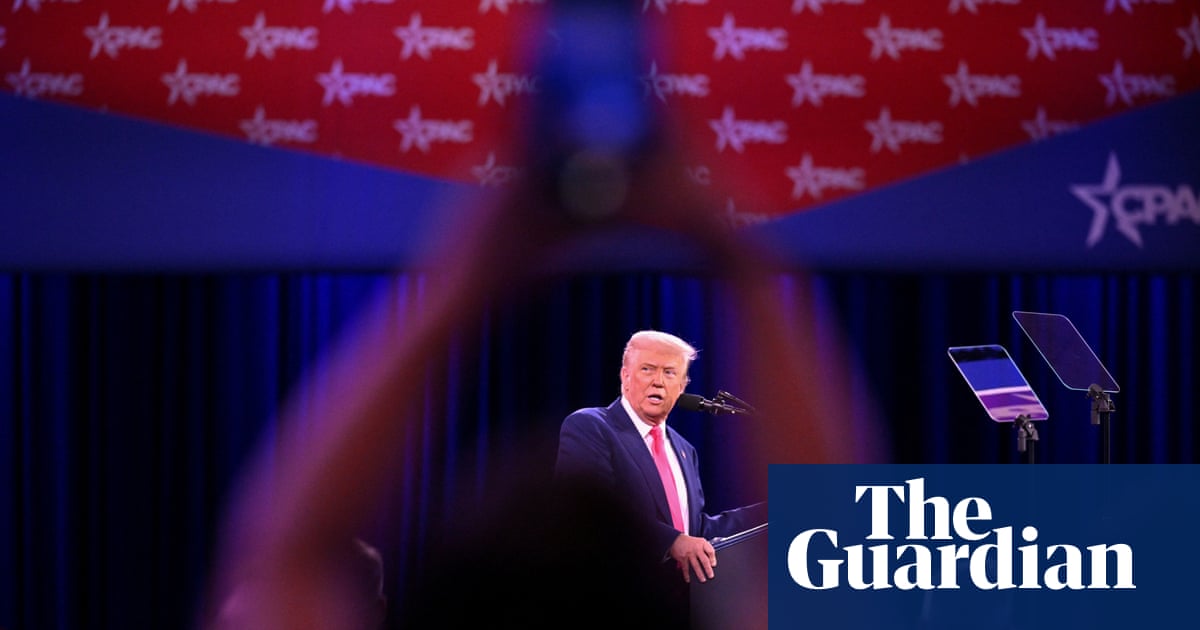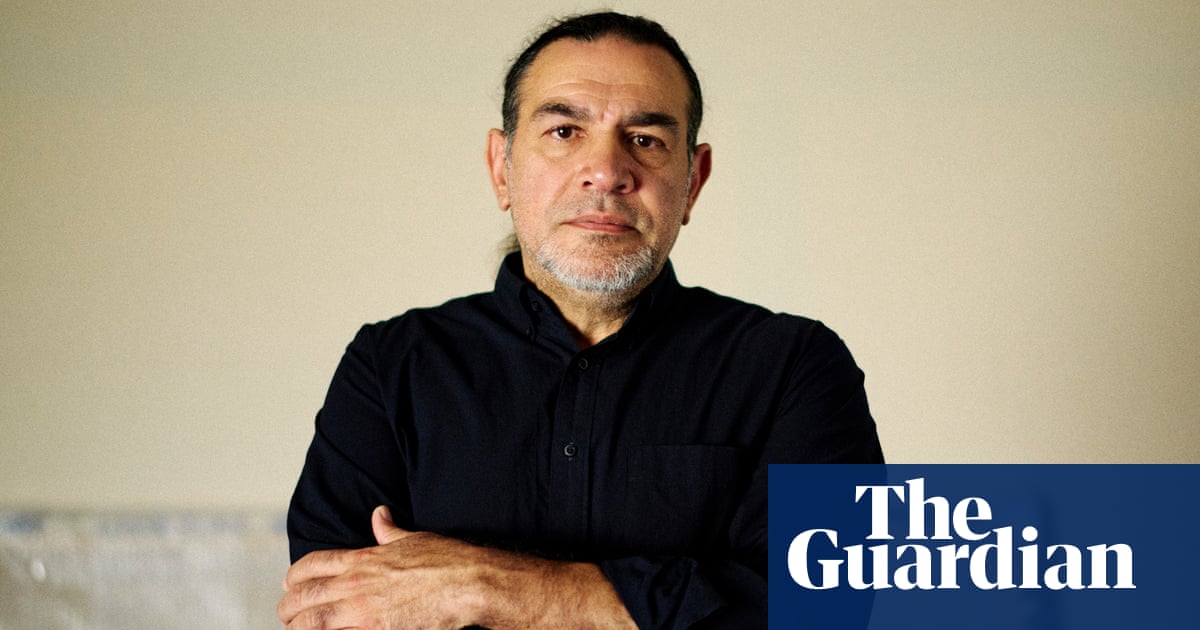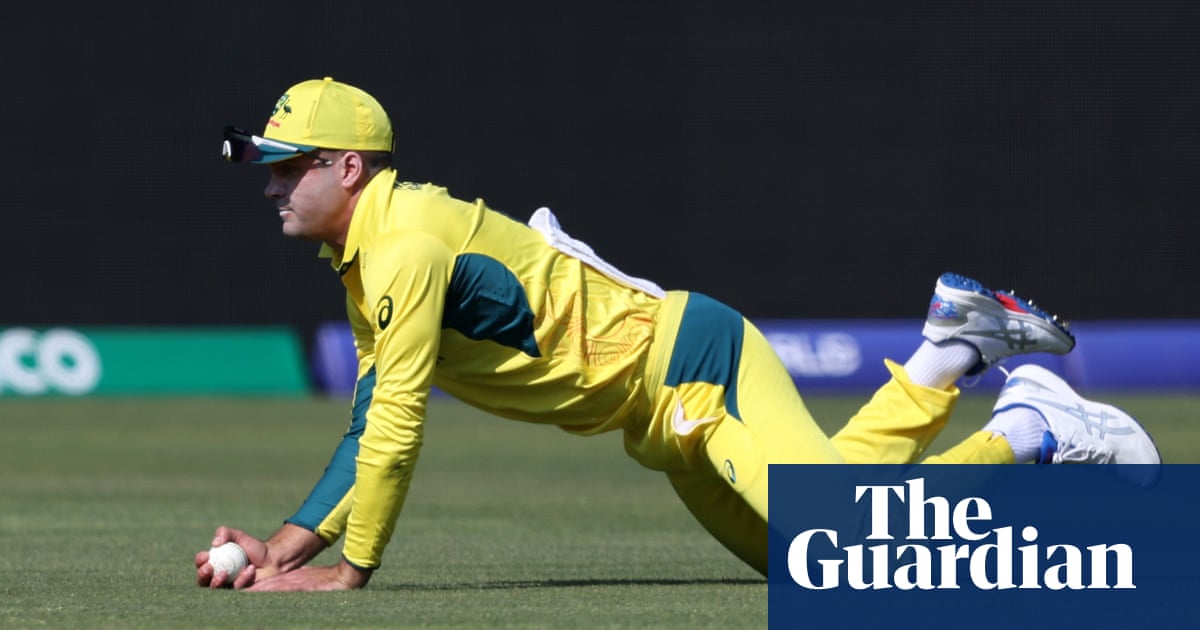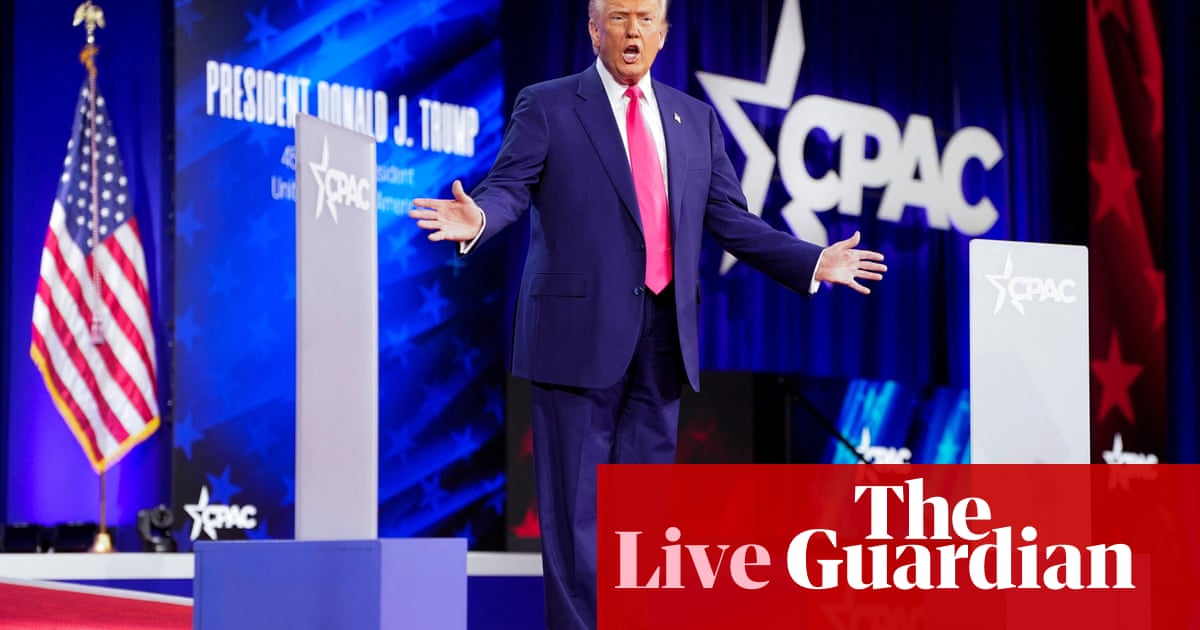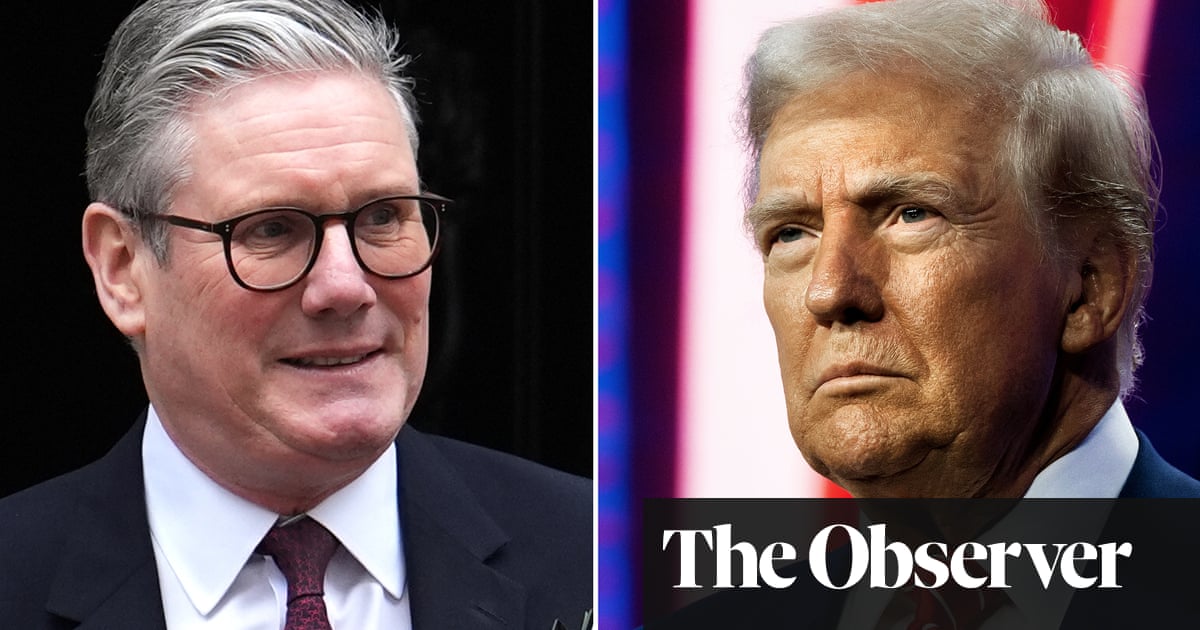
Haroon Siddique
Why did ICC issue Netanyahu arrest warrant and what are the implications?
Benjamin Netanyahu has become the first leader of a “western-style” democracy to have an arrest warrant issued in his name by the international criminal court. The court has also issued warrants for his former defence secretary, Yoav Gallant, and the Hamas military leader, Mohammed Deif.
Here the Guardian explains why the warrants have been issued and what they mean in practice.
On what grounds have the warrants been issued?
The warrants relate to the Hamas attack on Israel on 7 October 2023 and the Israeli military response in Gaza.
The ICC’s three-judge panel said it had found reasonable grounds to believe that Netanyahu and Gallant “bear criminal responsibility for … the war crime of starvation as a method of warfare and the crimes against humanity of murder, persecution, and other inhumane acts”.
What are the practical implications for Netanyahu and Gallant?
The ICC relies on 124 member states of the Rome statute, which established the court, to execute arrest warrants. Member states are obliged to arrest individuals wanted by the ICC who set foot on their territory and, while they do not always do so, it means that the accused will have to consider whether they are willing to risk travelling.
How does the ICC have jurisdiction over Israel when it isn’t a member?
The ICC has jurisdiction for both alleged crimes committed by a national of a member country and alleged crimes committed in the territory of a member state. Palestine acceded to the Rome statute in 2015, and the ICC ruled in 2021 that it was a state, thereby extending the court’s jurisdiction to territories occupied by Israel since 1967 – Gaza and the West Bank including East Jerusalem.
Read more by the Guardian’s legal affairs correspondent, Haroon Siddique here.
Key events Show key events only Please turn on JavaScript to use this feature
Israel’s military said on Friday it had killed five Hamas militants, including two commanders, in an overnight raid in northern Gaza’s Beit Lahia, where Palestinian medics reported dozens killed or missing.
In a statement, the military and the Shin Bet security agency said they had “eliminated five Hamas terrorists, including a Nukhba (commando) company commander and an additional company commander who participated in the October 7 massacre” that sparked the Gaza war last year.
The army added that the commanders had “led the murders and kidnappings in the area of Mefalsim”, a kibbutz community in southern Israel, near the Gaza border.
Medics in the Gaza Strip said an overnight Israeli raid on Beit Lahia and nearby Jabalia resulted in dozens killed or missing. The civil defence agency was not immediately able to provide an exact toll.
The Israeli military said it had taken “numerous steps... to mitigate the risk to civilians”.
It named the militant commanders killed as Jihad Kahlout and Muhammad Okel, “two terrorists who commanded the invasion of Israeli territory on October 7 and led the massacres and kidnappings on the Mefalsim road”.
They were “among the leaders of the combat in the northern Gaza Strip against IDF (army) soldiers, during the operation that is currently underway in the area”, the military statement added.
Netanyahu thanks Orban for 'moral clarity' over invite visit after ICC arrest warrant
Israeli prime minister Benjamin Netanyahu on Friday thanked his Hungarian counterpart Viktor Orban for his show of “moral clarity” after inviting him to visit despite an ICC arrest warrant.
“Faced with the shameful weakness of those who stood by the outrageous decision against the right of the State of Israel to defend itself, Hungary” is “standing by the side of justice and truth”, Netanyahu said in a statement the day after the International Criminal Court issued an arrest warrant for him and his former defence minister.
Netanyahu’s office also published what they said was a letter from Orban sent on Friday, in which he said he was shocked to learn of the ICC’s “shameful” move.
Here are the latest images from Gaza and the West Bank:


Palestinians search for casualties at the site of an Israeli strike on a house, amid the ongoing conflict between Israel and Hamas, in Gaza City November 22, 2024. Photograph: Dawoud Abu Alkas/Reuters


Israel to lift detention measures against settlers
Israeli authorities will stop holding Jewish settlers in the occupied West Bank under administrative detention, or incarceration without trial, the defence ministry announced Friday.
The practice allows for detainees to be held for long periods without being charged or appear in court, and is often used against Palestinians who Israel deems security threats.
Defence minister Israel Katz said it was “inappropriate” for Israel to employ administrative detention against settlers who “face severe Palestinian terror threats and unjustified international sanctions”.
But, according to settlement watchdog Peace Now, it is one of only few effective tools that Israeli authorities to prevent settler attacks against Palestinians, which have surged in the West Bank over the past year.
Katz said in a statement issued by his office that prosecution or “other preventive measures” would be used to deal with criminal acts in the West Bank.
B’Tselem, an Israeli rights group, said authorities use administrative detention “extensively and routinely” to hold thousands of Palestinians for lengthy periods of time.
The Palestinian Prisoners Club advocacy group told AFP in August that 3,432 Palestinians were held in administrative detention. Israeli daily Haaretz reported on Friday that eight settlers were held under the same practice in November.
Yonatan Mizrahi, director of settlement watch for Peace Now, told AFP that although administrative detention was mostly used in the West Bank to detain Palestinians, it was one of the few effective tools for temporarily removing the threat of settler violence through detention.
“The cancellation of administrative detention orders for settlers alone is a cynical... move that whitewashes and normalises escalating Jewish terrorism under the cover of war,” the group said in a statement, referring to a spike in settler attacks throughout the Israel-Hamas conflict over the past 13 months.
Western governments, including Israel’s ally and military backer the United States, have recently imposed sanctions on Israeli settlers and settler organisations over ties to violence against Palestinians.
On Monday, US authorities announced sanctions against Amana, a movement that backs settlement development, and others who have “ties to violent actors in the West Bank”.
“Amana is a key part of the Israeli extremist settlement movement and maintains ties to various persons previously sanctioned by the US government and its partners for perpetrating violence in the West Bank”, the US Treasury said.
Excluding Israeli-annexed east Jerusalem, the West Bank - which Israel has occupied since 1967 - is home to three million Palestinians as well as about 490,000 Israelis living in settlements that are illegal under international law.
The German government’s position on delivering weapons to Israel is “unchanged” after the International Criminal Court issued arrest warrants for Israel’s Benjamin Netanyahu and his former defence chief, a spokesperson said on Friday.
“Arms deliveries to Israel are always subject to a case-by-case assessment, and that remains the case now,” the spokesperson said. “Our attitude towards Israel remains unchanged.”
About 30% of global arms exports to Israel come from Germany, according to the Stockholm International Peace Research Institute. Sales include portable anti-tank weapons and rounds of ammunition for automatic or semi-automatic firearms.
Berlin considers support for the Jewish state a matter of Staatsräson, or reason of state, because of its responsibility for the Holocaust.
US rejects ICC arrest warrants
The US have said they “fundamentally reject” the International Criminal Court’s arrest warrants for senior Israel officials and said the court does not have jurisdiction over the matter.
On Thursday, arrest warrants were issued by the court for the Israeli prime minister, Benjamin Netanyahu, Israel’s former defence minister Yoav Gallant and the late Hamas military leader Mohammed Deif over alleged war crimes committed in Gaza.
The US, which is not an ICC member, has previously welcomed ICC war crimes warrants against Vladimir Putin and other Russian officials for atrocities committed in Ukraine.
“We remain deeply concerned by the prosecutors rush to seek arrest warrants and the troubling process errors that lead to this decision,” White House press secretary Karine Jean-Pierre said on Thursday, without going into further detail.
Jean-Pierre said the US has been clear the ICC does not have jurisdiction over the matter. The US are currently having conversations with partners, including Israel, she said, regarding next steps.
Pro-Palestinian groups took the Dutch state to court Friday, urging a halt to arms exports to Israel and accusing the government of failing to prevent what they termed a genocide in Gaza.
The NGOs argued that Israel is breaking international law in Gaza and the West Bank, invoking, amongst others, the 1948 United Nations Genocide Convention set up in the wake of the Holocaust.
“Israel is guilty of genocide and apartheid” and “is using Dutch weapons to wage war”, said Wout Albers, a lawyer representing the NGOs.
Israel furiously denies accusations of genocide as it presses the offensive in Gaza it began after the October 7, 2023, Hamas attack on Israel.
Opening the case at the court in The Hague, judge Sonja Hoekstra noted: “It is important to underline that the gravity of the situation in Gaza is not contested by the Dutch State, nor is the status of the West Bank.”
“Today is about finding out what is legally in play and what can be expected of the State, if the state can be expected to do more, or act differently than it is currently acting,” she added.
She acknowledged this was a “sensitive case”, saying: “It’s a whole legal debate.”
More aid workers have been killed this year than in any year since tallies began, the United Nations humanitarian office said on Friday, with most of them killed by Israel in the Gaza conflict.
So far this year there have been 281 aid workers killed, according to the Aid Worker Security database which has recorded incidents dating back to 1997, versus 280 in 2023 which held the previous record.
It showed 178 have been killed in the occupied Palestinian territories including Gaza this year which has been the deadliest conflict for the United Nations. Twenty-five were killed in Sudan, it showed.
“These people are doing God’s work, and they’re being killed in response. What the hell?” said Jens Laerke, spokesperson for the UN Humanitarian Office (OCHA), at a Geneva press briefing.
Most of the victims were local staff, while 13 of them were international aid workers, he added.
Aid workers enjoy protection under international humanitarian law but experts cite few precedents for such cases going to trial, with concerns about ensuring future access for aid groups and difficulty proving intent cited as impediments.
“This violence is unconscionable and devastating to aid operations,” said UN aid chief Tom Fletcher in a statement.
“States and parties to conflict must protect humanitarians, uphold international law, prosecute those responsible, and call time on this era of impunity,” he said.
Two medics have been killed in an Israeli strike targeting a vehicle in southern Lebanese town of Deir Qanoun Ras Al-Ain, the Lebanese health ministry said on Friday.
Julian Borger, the Guardian’s senior international correspondent, spoke with Today in Focus about the significance of Israeli prime minister Benjamin Netanyahu’s arrest warrant – the first time a western ally from a modern democracy has been charged with war crimes and crimes against humanity by a global judicial body.
He tells Hannah Moore how allies such as the US and UK are likely to react to the news, and the impact it has had in Israel.
In practical terms, it is unlikely to affect the prosecution of the war, Julian explains. But could it further damage Israel’s international standing?
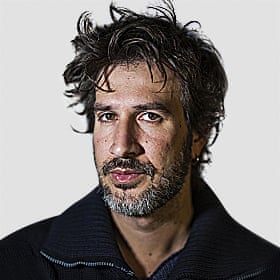
Lorenzo Tondo
On Thursday, Italy said it would have to arrest Netanyahu if he came to the country.
Following the warrant issued by the International Criminal Court (ICC), founded on the Rome Statute, in an interview with Rai, Defence Minister Guido Crosetto said his country would be obliged to arrest Netanyahu if he visited.
Although Italy’s government said it believed the ICC was “wrong”, Crosetto said that if Netanyahu and his former defence minister Yoav Gallant “were to come to Italy, we would have to arrest them” under international law.
“By joining the Court, we must apply its judgments, it is part of the treaty,’’ he said.
Every State that joins would be obliged, the only way to not apply it would be to withdraw from the treaty. I may consider this judgment to be wrong. I think it is wrong. They made a judgment that put the Israeli president and (the former) minister of defence on the same level as the one who led and organized the shameful attack that massacred women, men, and children and kidnapped Israelis. And from which the war started. And they are two completely different things: on one hand there is a terrorist act, on the other hand there is a country that, as a result of this act, tries to eradicate a criminal terrorist organization.
The opposition centre-left Democratic Party (Pd) said the government should do what it can for the arrest warrants to be executed.
“The attack on the International Criminal Court over the arrest warrant for Netanyahu has begun,” said PD foreign affairs chief Peppe Provenzano via X.
“Italy has a duty to respect it, but also to comply with its decisions”.
Here are the latest images from Gaza:




Countries are responding to the International Criminal Court (ICC) arrest warrants issued on Thursday for the Israeli prime minister, Benjamin Netanyahu, the country’s former defence minister Yoav Gallant and the Hamas military leader Mohammed Deif for alleged war crimes relating to the Gaza war.
Netanyahu and Gallant are at risk of arrest if they travel to any of the 124 countries that signed the Rome statute establishing the court.
Ireland said it would be prepared to arrest Netanyahu if he came to the country, prime minister Simon Harris said.
“Yes absolutely. We support international courts and we apply their warrants,” Harris told national broadcaster RTE on Friday when asked if Netanyahu would be arrested if he arrived in Ireland for whatever reason.
Germany said it is “examining” how to respond to the International Criminal Court’s decision to issue an arrest warrant for Netanyahu, Germany’s foreign minister Annalena Baerbock said Friday.
Slovenia also said it will respect arrest warrants for Israel and Hamas leaders issued by the ICC and “will fully comply”, prime minister Robert Golob was quoted as saying by Slovenian news agency STA.
As mentioned in the opening summary, Hungarian prime minister, Viktor Orban, has said he will invite his Israeli counterpart Benjamin Netanyahu to visit.

Haroon Siddique
Why did ICC issue Netanyahu arrest warrant and what are the implications?
Benjamin Netanyahu has become the first leader of a “western-style” democracy to have an arrest warrant issued in his name by the international criminal court. The court has also issued warrants for his former defence secretary, Yoav Gallant, and the Hamas military leader, Mohammed Deif.
Here the Guardian explains why the warrants have been issued and what they mean in practice.
On what grounds have the warrants been issued?
The warrants relate to the Hamas attack on Israel on 7 October 2023 and the Israeli military response in Gaza.
The ICC’s three-judge panel said it had found reasonable grounds to believe that Netanyahu and Gallant “bear criminal responsibility for … the war crime of starvation as a method of warfare and the crimes against humanity of murder, persecution, and other inhumane acts”.
What are the practical implications for Netanyahu and Gallant?
The ICC relies on 124 member states of the Rome statute, which established the court, to execute arrest warrants. Member states are obliged to arrest individuals wanted by the ICC who set foot on their territory and, while they do not always do so, it means that the accused will have to consider whether they are willing to risk travelling.
How does the ICC have jurisdiction over Israel when it isn’t a member?
The ICC has jurisdiction for both alleged crimes committed by a national of a member country and alleged crimes committed in the territory of a member state. Palestine acceded to the Rome statute in 2015, and the ICC ruled in 2021 that it was a state, thereby extending the court’s jurisdiction to territories occupied by Israel since 1967 – Gaza and the West Bank including East Jerusalem.
Read more by the Guardian’s legal affairs correspondent, Haroon Siddique here.
Opening Summary
The Hungarian prime minister, Viktor Orban, has said he will invite his Israeli counterpart Benjamin Netanyahu to visit, in defiance of an ICC arrest warrant for Netanyahu’s alleged war crimes relating to the Gaza war.
The Hague-based court on Thursday issued warrants for Netanyahu and former Israeli Defence Minister Yoav Gallant, as well as Hamas military chief Mohammed Deif “for crimes against humanity and war crimes committed from at least 8 October 2023 until at least 20 May 2024”.
It is the first time that leaders of a democracy and western-aligned state have been charged by the court, in the most momentous decision of its 22-year history. Netanyahu and Gallant are at risk of arrest if they travel to any of the 124 countries that signed the Rome statute establishing the court.
In his weekly interview with state radio, Orban called the ICC’s decision, “outrageously brazen” and “cynical”, saying it “intervenes in an ongoing conflict… dressed up as a legal decision, but in fact for political purposes”.
“There is no choice here, we have to defy this decision,” Orban said.
Hungary signed the Rome Statute, the international treaty that created the ICC, in 1999 and ratified it two years later during Orban’s first term in office. However, Budapest has not promulgated the associated convention for reasons of constitutionality and therefore asserts that it is not obliged to comply with ICC decisions.
“Later today, I will invite the Israeli Prime Minister, Mr Netanyahu, to visit Hungary, where I will guarantee him, if he comes, that the judgment of the International Criminal Court will have no effect in Hungary, and that we will not follow its terms,” he added.


 3 months ago
53
3 months ago
53






